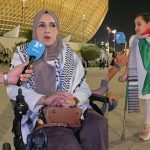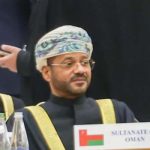The third meeting of special envoys concerned with Afghanistan, which took place in Doha, Qatar, was described by Under-Secretary-General of the United Nations for Political and Peacebuilding Affairs Rosemary DiCarlo as largely fruitful and ongoing. DiCarlo mentioned that this meeting allowed for detailed and useful discussions based on priority areas listed in an independent evaluation recognized by the United Nations Security Council. She highlighted the obstacles faced by Afghanistan’s private sector in terms of development and growth, emphasizing the negative impact on the economy and livelihoods. DiCarlo stressed the importance of Afghanistan building on progress made in reducing drug production and terrorism, as well as addressing the restrictions imposed on women and girls.
DiCarlo expressed concern that Afghanistan cannot fully develop economically and socially if it is deprived of the contributions and capabilities of half its population. She expressed hopes that the ongoing participation and discussions will help move Afghanistan towards becoming a more open and inclusive society, both in terms of governance and civic participation. DiCarlo thanked Qatar for hosting the meeting and expressed regret for the refusal of some Afghan parties to participate. She noted that despite this, constructive discussions had taken place over the past two days, bringing the international community closer to resolving issues impacting the Afghan people.
The importance of including the concerns and opinions of Afghan women and civil society was emphasized by DiCarlo, stating that their meaningful inclusion in political and peace processes is a guiding principle. She highlighted the role that civil society plays in shaping the future of Afghanistan and stressed the need for governance reforms, respect for minority rights, and efforts to combat drugs and terrorism. DiCarlo also addressed the absence of Afghan women and civil society in the meeting of de facto authorities, stating that their voices were still heard and their inclusion in all aspects of public life is crucial.
The goal of the meetings in Doha was to facilitate direct talks between the de facto authorities and special envoys, however, despite the absence of Afghan civil society, the need for their inclusion was made clear to the de facto authorities. DiCarlo emphasized that this meeting and engagement process do not imply normalization or recognition of the de facto authorities. She highlighted the unity of the international community in its determination to engage with Afghanistan and the commitment of the United Nations to support principled engagement for the benefit of all Afghans.
In conclusion, the meeting of special envoys in Doha provided a platform for important discussions on various issues impacting Afghanistan, with a focus on governance, minority rights, and security concerns. The involvement of Afghan women and civil society was highlighted as crucial for the country’s future development and inclusivity. Despite challenges such as the refusal of some Afghan parties to participate and the absence of Afghan women and civil society in the meetings with de facto authorities, progress was seen in moving towards resolving issues affecting the Afghan people. The commitment of the international community and the United Nations to engage with Afghanistan for the benefit of all its citizens was reiterated by Under-Secretary-General Rosemary DiCarlo.










